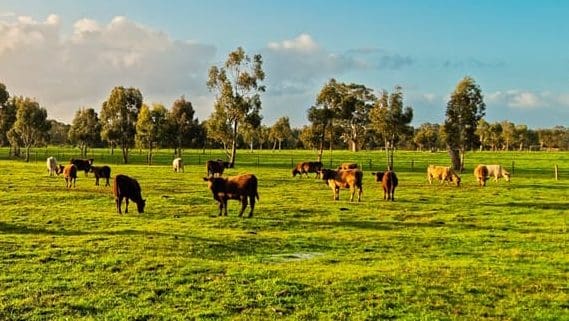Opinion
DEBATE has erupted over a carbon neutral accreditation scheme, run by the Australian Government, after dozens of companies and one of the country’s biggest carbon aggregators announced they were exiting the scheme.

The Clean Energy Finance Corporation has put up $75 million for Paraway Pastoral Company to reduce methane emissions by 30 percent.
Climate Active was set up by the Government to set standards and certify voluntary targets to reduce emissions or become carbon neutral.
Several Australian beef brands have used the scheme to make carbon neutral claims – including Coles, Arcadian Organic and the North Australia Pastoral Company. NAPCo is no longer using it.
But more than 100 companies have left the program over the past two years after pressure from the anti-fossil fuel lobby to scrap the scheme. Last week, one the country’s biggest carbon aggregators Green Collar announced it was following suit.
Climate Active is a separate program to Australia’s regulated carbon market – which is known as the safeguard mechanism.
Unlike the safeguard mechanism, which forces big emitting companies to purchase offsets if they exceed a certain baseline, Climate Active is a program companies voluntarily participate in.
Why are companies leaving Climate Active?
The voluntary Climate Active certification has been the subject of scrutiny over the years, mainly for allowing companies to purchase cheap carbon credits from overseas to make marketing claims.
There is also an ideological opposition to carbon offsets from anti-fossil fuel groups, who say they are being used by companies to keep business-as-usual and claim to be reducing their emissions – a debate that is happening globally.
With pressure on the Climate Active scheme, the Government announced a review in 2023 – proposing a series of changes and calling for consultation.
The carbon industry’s peak body, the Carbon Market Institute, was one of the groups calling for reforms. CMI proposed a raft of changes, including greater scrutiny on carbon credits and a move away from the term ‘carbon neutral’.
But no reforms have been made since the review and groups opposed to the scheme have been ramping up pressure on the Government to scrap it.
Last week, Green Collar bit back against the anti-fossil fuel groups calling for end to Climate Active in announcing it was also pulling out of the scheme – with its co-founder James Schulz telling The Australian that the scheme had been hijacked by groups who can only look through the lens of “good and bad”.
NAPCo pulls out of Climate Active
NAPCo is another company that has pulled out of Climate Active, after certifying its Five Founders beef range in 2019.
When it first moved into the carbon neutral program, NAPCo purchased carbon credits. The company had also undertaken a series of initiatives to reduce emissions within its own supply chain – including the use of Bovaer, making its herd more efficient and work to sequester carbon on its grazing land.
The company says it has remained proactive and ready to invest in carbon projects, but recent shifts in legislation have prompted a more considered approach. It says rather than rushing into uncertain frameworks, the business is now focused on aligning with long-term, science-backed opportunities that offer stability and meaningful environmental outcomes.
NAPCo says it is seeking out another third-party verifying program to support and validate its efforts.
Long-line of Government indecision
Making more ambitious climate targets has been one of the main policy areas of the recently re-elected Labor Government. However, it has been reluctant to make tough decisions about the carbon market when the pressure is on.
One of Australia’s most controversial carbon methodologies (human induced regeneration) was cancelled a couple of years ago, with the Government promising to roll it into a new methodology called Integrated Farm and Land Management.
But that process has been delayed for years, with the department at one point getting cold feet about putting HIR into the methodology.
The last time climate change minister Chris Bowen mentioned IFLM, he said a draft of it will be ready for consideration this year.
The Government also cancelled the Beef Herd methodology, which allows cattle companies to claim carbon credits through making their herds more efficient. A review from the Emissions Reduction Assurance Committee, which makes recommendations to the minister, said it did not meet integrity standards.
Industry groups, particularly Cattle Australia, have been campaigning to have the methodology reinstated and they believe they have found a path forward.
ERAC is now reviewing another popular agriculture-related methodology in soil carbon.

Glad to see these possibilities SCAMS collapsing.